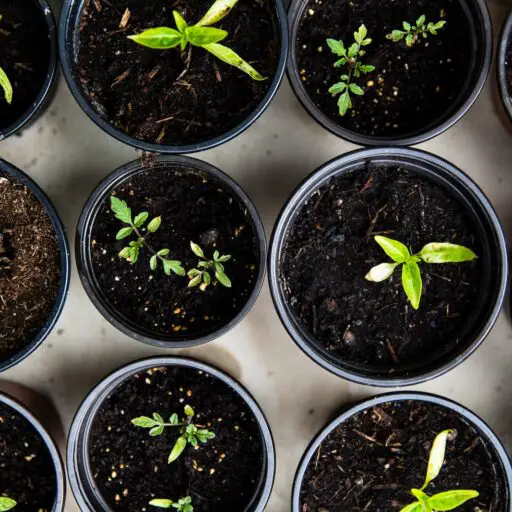Support our educational content for free when you purchase through links on our site. Learn more
At Community Gardening™, we believe that community gardening has numerous benefits, including benefits for mental health. In this article, we will dive deeper into the mental health benefits of community gardens. We'll also cover the benefits of community gardens, the psychological benefits of growing plants, and how gardening can help with depression.
Benefits of Community Gardens
Community gardens offer a multitude of benefits, ranging from physical exercise to social interaction. However, community gardens can also have a positive impact on mental health. Here are some of the mental health benefits of community gardens:
1. Proven Stress Reduction
Gardening is a natural stress-reliever. In fact, studies have found that spending time in a garden can significantly reduce cortisol, the hormone associated with stress. That means spending time in a community garden can help reduce stress levels and promote feelings of relaxation.
2. Increased Self-Esteem
Growing and nurturing plants can have a positive impact on one's self-esteem. When plants thrive under your care, it can boost your confidence and sense of accomplishment.
3. Sense of Community
Community gardens are an excellent way to connect with others. By working alongside others in a garden, you can develop a sense of community and belonging. Studies have shown that this sense of community can have positive effects on mental health, including reducing loneliness and depression.
4. Improved Mood
Spending time in nature, including community gardens, has been linked to improved mood. The fresh air, sunlight, and peaceful environment can help reduce symptoms of anxiety, depression, and other mood disorders.
5. Sense of Purpose
To maintain a community garden, you must be committed to its upkeep. This consistent work and dedication can help give individuals a sense of purpose. This sense of purpose can help provide a sense of fulfillment, which is vital for overall mental health.
The Psychological Benefits of Growing Plants
In addition to the mental health benefits of community gardens, growing plants can have several psychological benefits. Here are some of the key psychological benefits:
1. Reducing Stress and Anxiety
Growing and nurturing plants can be very meditative, which can help reduce stress and anxiety. The act of watering and caring for plants can be a form of mindfulness, promoting feelings of calmness and relaxation.
2. Improved Memory
Studies have shown that exposure to nature can help improve cognitive function, including memory. This means that growing plants could help improve memory and concentration.
3. Reduced Symptoms of PTSD
Growing plants can also be used as a therapeutic tool for individuals living with PTSD. Studies have found that gardening can be an effective way to reduce symptoms of PTSD, including insomnia and anxiety.
Can Gardening Help with Depression?
Yes, gardening can help with depression. Depression is a complex mental health condition that can manifest in different ways. However, studies have shown that gardening can be an effective way to alleviate some of the symptoms of depression.
Why Gardening Is Effective for Depression
Gardening can be effective for depression for several reasons. Firstly, gardening provides a sense of purpose and accomplishment, which can be valuable for individuals experiencing low moods. Additionally, gardening allows individuals to spend time in nature, which is known to have mood-boosting benefits. Lastly, gardening is a form of exercise, which is a well-known mood-booster.
Common Activities for Effective Depression Gardening
If you're interested in using gardening to help manage depression, here are some common activities you can partake in:
- Planting seeds
- Caring for plants
- Harvesting fruits and vegetables
- Creating a garden design
- Engaging in mindful plant-related practices, like smelling flowers or admiring a plant's growth
Quick Tips and Facts
- Gardening can be a low-cost form of therapy that is accessible to most individuals.
- Studies have shown that gardening can improve sleep quality.
- Gardening can be a meaningful activity for individuals in retirement communities.
- Children who participate in gardening activities may have better self-esteem and emotional regulation.
FAQ
What are 5 benefits of a community garden?
- Stress reduction
- Increased self-esteem
- Sense of community
- Improved mood
- Sense of purpose
What are the psychological benefits of growing plants?
- Reducing stress and anxiety
- Improved memory
- Reduced symptoms of PTSD
Can gardening help with depression?
Yes, gardening can help with depression. Gardening provides a sense of purpose, allows individuals to spend time in nature, and is a form of exercise.
Conclusion
In conclusion, community gardens can have numerous mental health benefits. From stress reduction to increased self-esteem, community gardens can provide individuals with a sense of purpose while also connecting them to their community. Additionally, growing plants can have several psychological benefits, including reducing symptoms of depression and anxiety. Overall, gardening can be a low-cost, accessible form of therapy that can improve an individual's mental health. If you're looking for a fun and fulfilling way to boost your mental health, give gardening a try!
References
- "Community Gardening: Stress, Well-Being, and Resilience Potentials"
- https://www.health.harvard.edu/mind-and-mood/a-prescription-for-better-health-go-alfresco
- https://www.epicgardening.com/mental-health-benefits-of-gardening/
- https://www.psychologytoday.com/intl/blog/urban-mindfulness



